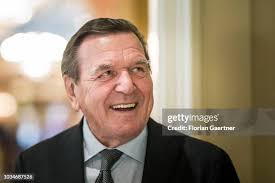Current Developments Surrounding the German Chancellor

Introduction
The role of the German Chancellor is pivotal not only in German politics but also in shaping European and global policies. As the head of the German government, the Chancellor’s decisions and leadership have profound implications on issues ranging from economic policies to foreign relations. With Germany being a leading economy in Europe, understanding the current dynamics of the Chancellor’s office is crucial for grasping the shifting political landscape.
Recent Events and Policies
In 2023, German Chancellor Olaf Scholz has faced several critical challenges, including economic recovery post-pandemic, energy security amid geopolitical tensions, and the ongoing war in Ukraine. One of the most significant developments has been Germany’s push for energy independence, particularly in light of reduced gas supplies from Russia. The Chancellor has supported initiatives to increase renewable energy production and diversify energy sources.
In a recent address, Scholz highlighted the importance of transitioning to a sustainable energy framework, stating, “Our dependence on fossil fuels must diminish, and we must accelerate our investments in renewables.” This commitment comes as Germany aims to meet its Climate Goals for 2030 amidst both domestic and international pressures.
Furthermore, Germany’s stance towards the war in Ukraine has been another cornerstone of Scholz’s tenure. In July 2023, Germany pledged additional military support to Ukraine, reinforcing its role as a key ally in the European response to Russian aggression. This move has been met with mixed reactions domestically, with some citizens advocating for increased military aid, while others express concern about escalating military involvement.
Conclusion and Significance
The developments surrounding the German Chancellor and his administration underscore the complex interplay of domestic and international challenges faced by Germany today. As Scholz navigates through energy policies, military support, and economic revival strategies, his leadership will likely be vital in determining Germany’s future role within the EU and the global community.
Looking ahead, many political analysts predict that the upcoming elections in Germany could reshape the political landscape, especially as voters respond to the handling of pressing issues such as inflation and immigration. The actions taken by the German Chancellor in the current atmosphere could not only influence Germany’s future but also set a precedent for leadership in Europe during tumultuous times. For citizens both inside and outside Germany, staying informed on the decisions made by the Chancellor will be essential in understanding Europe’s direction in the coming years.









